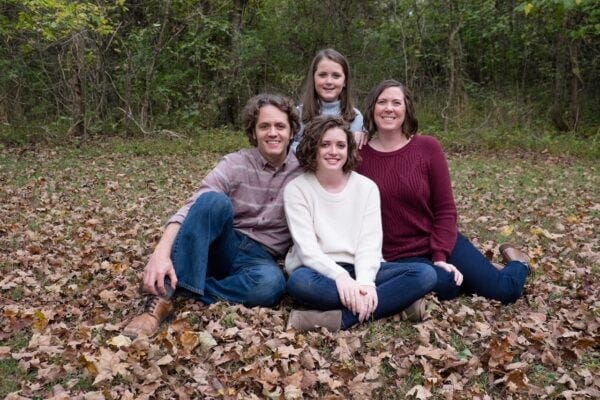From Survivor to Scientist: My Path to Combat Cancer Effectively
Written on
Chapter 1: A Life-Altering Diagnosis
My life has taken an unexpected turn, transforming from the uncertainty of a 13-year-old diagnosed with leukemia to a committed physician-scientist striving for a breakthrough in cancer treatment.
On October 4, 1995, my primary concern was a junior high football game. However, within 24 hours, my world changed forever with the diagnosis of acute lymphoblastic leukemia. This news forced me to leave school and embark on a journey through childhood cancer, beginning with my inaugural flight to Memphis, TN, where a devoted team of physicians at St. Jude Children’s Research Hospital awaited me.
Upon arrival, I was immediately enrolled in a two-and-a-half-year treatment regimen, which included weekly chemotherapy sessions. Naturally, as a young cancer patient, I was filled with questions: What changes would occur in my body? What is the function of chemotherapy? How did I come to have cancer? My medical team did their utmost to provide answers, yet during the mid-90s, much about this disease remained a mystery.
The initial months of treatment were tough, but my curiosity about the science and physiology behind my condition motivated me to push through. I yearned to comprehend the reasons for my illness and to grasp what my recovery might entail.
Before my diagnosis, I hadn't seen myself as an exemplary student; my dreams were predominantly focused on football. However, these treatment sessions transformed into educational experiences, and I quickly realized my desire to contribute to the medical field, especially in cancer treatment.
My pediatrician swiftly diagnosed the cause of my symptoms, leading to a transformative treatment plan. Inspired by the care I received, I resolved to become a physician to provide future patients with the same exceptional support I had, but with even greater clarity.
Following my sophomore year in college, I joined a summer program at St. Jude Children’s Research Hospital. It was during this time that I gained hands-on experience in a pediatric cancer research lab, which solidified my career goals.
These experiences motivated me to pursue a combined M.D./Ph.D. degree in medical school, training as a physician-scientist. I completed a residency in general pediatrics, followed by a fellowship in pediatric hematology/oncology. It was during my fellowship that I discovered my passion for researching genetic factors linked to inherited bone marrow failure, a condition that can lead to leukemia. Current treatment options, primarily bone marrow transplants, carry significant risks, especially for children. My research aims to enhance our understanding of these genetic factors, with the hope of developing improved treatment strategies. One day, I aspire to create a method that determines when a bone marrow transplant is necessary for specific inherited bone marrow failure syndromes, minimizing long-term side effects.
My own experiences with anxiety during my illness allow me to empathize deeply with patients and their families. This empathy is what makes my work fulfilling. It's not only about finding answers to scientific questions but also about sharing those insights with families to alleviate the fears and challenges they face.
Understanding the anxiety that comes with uncertainty, I strive to empower patients through knowledge, helping them navigate their recovery journey with clarity and confidence. It’s vital to avoid succumbing to negativity during challenging times, so I focus on providing transparency and explanations to help them cope with unavoidable uncertainties.
My personal journey, shaped by my experiences and empathy for families facing similar battles, fuels my dedication to research and compassionate patient care. This commitment is supported by grants from organizations like the V Foundation for Cancer Research, which play a crucial role in advancing the work of young oncologists and researchers. These grants provide essential funding and demonstrate trust in my mission to enhance our understanding of pediatric cancer and inherited bone marrow conditions, pushing the boundaries of research towards breakthroughs that can transform patient treatment.
From a bewildered 13-year-old grappling with leukemia to a passionate physician-scientist, my journey is a testament to the unwavering support of my family and my determination to make a meaningful difference in the lives of those affected by cancer. With the backing of organizations like the V Foundation, I am devoted to making this hope a reality.

Chapter 2: The Importance of Physician-Scientists
In the video titled "Charting the Course: The Journey to Becoming a Physician-Scientist," Dr. Schwartz discusses his path and the significant role physician-scientists play in advancing medical research and patient care.
The second video, "Why are physician-scientists crucial to our future?" by Dianna Milewicz at TEDxHouston, emphasizes the vital contributions of physician-scientists in shaping the future of healthcare and cancer research.